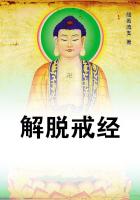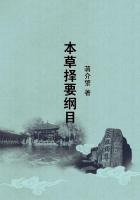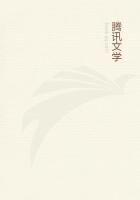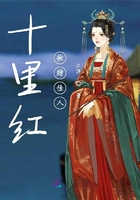THE TEMPTATION
Two years have gone by all but a few months, and from the rectory in a quiet English village we pass to a scene in Central, or South Central, Africa.
On the brow of a grassy slope dotted over with mimosa thorns, and close to a gushing stream of water, stands a house, or rather a hut, built of green brick and thatched with grass. Behind this hut is a fence of thorns, rough but strong, designed to protect all within it from the attacks of lions and other beasts of prey. At present, save for a solitary mule eating its provender by the wheel of a tented ox- waggon, it is untenanted, for the cattle have not yet been kraaled for the night. Presently Thomas Owen enters this enclosure by the back door of the hut, and having attended to the mule, which whinnies at the sight of him, goes to the gate and watches there till he sees his native boys driving the cattle up the slope of the hill. At length they arrive, and when he has counted them to make sure that none are missing, and in a few kind words commended the herds for their watchfulness, he walks to the front of the house and, seating himself upon a wooden stool set under a mimosa tree that grows near the door, he looks earnestly towards the west.
The man has changed somewhat since last we saw him. To begin with, he has grown a beard, and although the hot African sun has bronzed it into an appearance of health, his face is even thinner than it was, and therein the great spiritual eyes shine still more strangely.
At the foot of the slope runs a wide river, just here broken into rapids where the waters make an angry music. Beyond this river stretches a vast plain bounded on the horizon by mountain ranges, each line of them rising higher than the other till their topmost and more distant peaks melt imperceptibly into the tender blue of the heavens.
This is the land of the Sons of Fire, and yonder amid the slopes of the nearest hills is the great kraal of their king, Umsuka, whose name, being interpreted, means The Thunderbolt.
In the very midst of the foaming rapids, and about a thousand yards from the house lies a space of rippling shallow water, where, unless it chances to be in flood, the river can be forded. It is this ford that Owen watches so intently.
"John should have been back twelve hours ago," he mutters to himself.
"I pray that no harm has befallen him at the Great Place yonder."
Just then a tiny speck appears far away on the plain. It is a man travelling towards the water at a swinging trot. Going into the hut, Owen returns with a pair of field-glasses, and through them scrutinises the figure of the man.
"Heaven be praised! It is John," he mutters, with a sigh of relief.
"Now, I wonder what answer he brings?"
Half an hour later John stands before him, a stalwart native of the tribe of the Amasuka, the People of Fire, and with uplifted hand salutes him, giving him titles of honour.
"Praise me not, John," said Owen; "praise God only, as I have taught you to do. Tell me, have you seen the king, and what is his word?"
"Father," he answered, "I journeyed to the great town, as you bade me, and I was admitted before the majesty of the king; yes, he received me in the courtyard of the House of Women. With his guards, who stood at a distance out of hearing, there were present three only; but oh! those three were great, the greatest in all the land after the king.
They were Hafela, the king that is to come, the prince Nodwengo, his brother, and Hokosa the terrible, the chief of the wizards; and I tell you, father, that my blood dried up and my heart shrivelled when they turned their eyes upon me, reading the thoughts of my heart."
"Have I not told you, John, to trust in God, and fear nothing at the hands of man?"
"You told me, father, but still I feared," answered the messenger humbly. "Yet, being bidden to it, I lifted my forehead from the dust and stood upon my feet before the king, and delivered to him the message which you set between my lips."
"Repeat the message, John."
"'O King,' I said, 'beneath those footfall the whole earth shakes, whose arms stretch round the world and whose breath is the storm, I, whose name is John, am sent by the white man whose name is Messenger'--for by that title you bade me make you known--'who for a year has dwelt in the land that your spears have wasted beyond the banks of the river. These are the words which he spoke to me, O King, that I pass on to you with my tongue: "To the King Umsuka, lord of the Amasuka, the Sons of Fire, I, Messenger, who am the servant and the ambassador of the King of Heaven, give greeting. A year ago, King, I sent to you saying that the message which was brought by that white man whom you drove from your land had reached the ears of Him whom I serve, the High and Holy One, and that, speaking in my heart, He had commanded me to take up the challenge of your message. Here am I, therefore, ready to abide by the law which you have laid down; for if guile or lies be found in me, then let me travel from your land across the bridge of spears. Still, I would dwell a little while here where I am before I pass into the shadow of your rule and speak in the ears of your people as I have been bidden. Know, King, that first I would learn your tongue, and therefore I demand that one of your people may be sent to dwell with me and to teach me that tongue. King, you heard my words and you sent me a man to dwell with me, and that man has taught me your tongue, and I also have taught him, converting him to my faith and giving him a new name, the name of John. King, now I seek your leave to visit you, and to deliver into your ears the words with which I, Messenger, am charged. I have spoken."'














